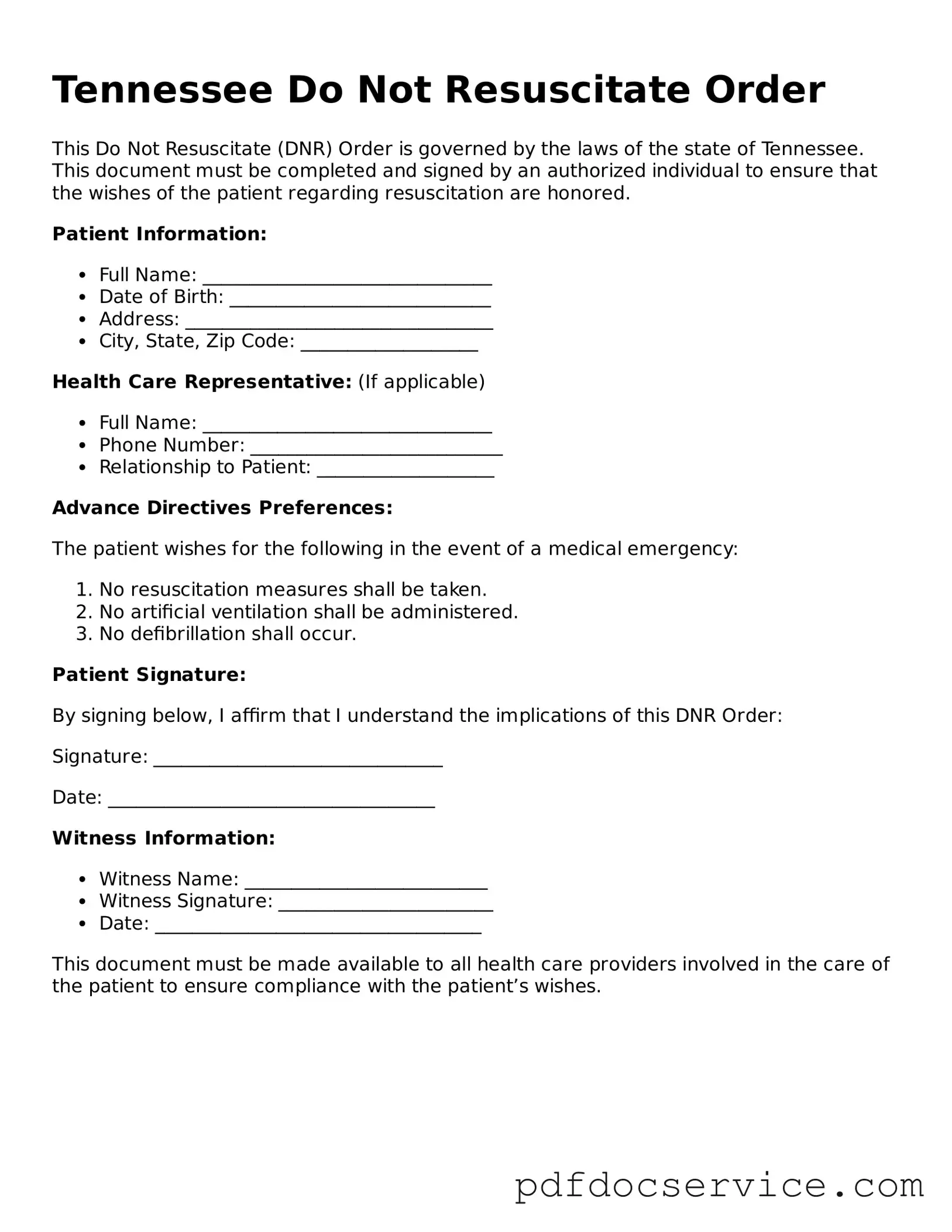Printable Do Not Resuscitate Order Template for Tennessee
A Tennessee Do Not Resuscitate Order (DNR) form is a legal document that allows individuals to express their wishes regarding resuscitation efforts in the event of a medical emergency. This form ensures that healthcare providers honor a patient's desire to forgo life-saving measures. Understanding how to properly complete and implement a DNR can provide peace of mind for both patients and their families.
Open Do Not Resuscitate Order Editor

Printable Do Not Resuscitate Order Template for Tennessee
Open Do Not Resuscitate Order Editor

Open Do Not Resuscitate Order Editor
or
Get Do Not Resuscitate Order PDF
Finish the form now and be done
Finish Do Not Resuscitate Order online using simple edit, save, and download steps.